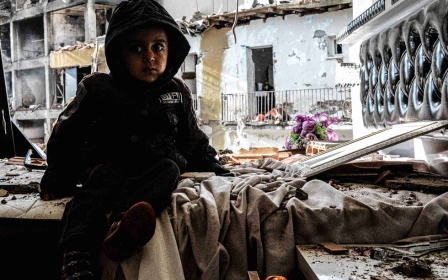German-Turkish relations face 'biggest challenge of modern era': Minister

Germany summoned the Turkish ambassador over the arrest of one of its journalists, as Germany's foreign minister warned relations between the countries were "facing one of their greatest challenges of the modern era".
On Monday, a court in Istanbul ordered the provisional detention of Deniz Yucel, a correspondent for the German newspaper Die Welt, in a move that drew a stern rebuke from Germany.
The newspaper said Yucel, 43, a dual citizen of Turkey and Germany, had been charged with spreading terrorist propaganda and inciting hatred.
He has been held since 18 February in connection with news reports about an attack by hackers against the email account of Turkey's energy minister.
The incident has been just the latest in deteriorating relations between Turkey and Germany, the latter hosting the world's largest Turkish diaspora, including many Turkish Kurds.
Ankara has frequently accused Berlin of tolerating the presence of groups supporting the banned Kurdistan Workers Party (PKK).
Foreign Minister Sigmar Gabriel told reporters in Berlin that freedom of speech was protected by the constitutions of both countries, and none that claimed to be democratic or to respect human rights could "misuse" its judicial system to go after journalists.
Some Turkish localities blocked the website of the German newspaper Bild after it criticised the arrest of Yucel.
Axel Springer media group, which owns Die Welt, mounted a huge sign proclaiming "#freedeniz" on the roof of its building in central Berlin, while protests against his arrest took place in 10 German cities as well as in Switzerland and Austria.
German Justice Minister Heiko Maas on Tuesday said Ankara's prospects of joining the EU would become "increasingly difficult to impossible" unless it stuck to basic European values.
Erdogan visit unlikely
He also set a high bar for a possible visit by Turkish President Tayyip Erdogan.
"With respect to visits by Turkish politicians in Germany, it is clear that those who want to benefit from freedom of speech here should also safeguard the rule of law and freedom of the press at home," Maas said in a statement.
At the same time, Berlin is counting on Turkey to uphold a deal with the European Union to prevent refugees from crossing to Greece.
During their investigation, Turkish prosecutors questioned Yucel's ties to a leftist hacker group alleged to have obtained emails from the private account of Berat Albayrak, Turkey’s energy minister and Erdogan’s son-in-law, Yucel's lawyer said.
They also questioned him about a 2015 interview with Cemil Bayik, a senior member of the PKK, the lawyer said.
Gabriel said the case was making it "extraordinarily difficult" for even well-intentioned Turks and Germans to continue to work for improved relations. He said Berlin was demanding consular access to Yucel, and doing all it could to secure his release.
Yucel said at the Frankfurt Book Fair in October he was lucky to have a German passport because it had allowed him to keep working, said Can Dundar, a Turkish journalist now working in exile in Germany.
"He had faith in his German identity, but it didn't work," Dundar told Reuters.Turkey has launched a major crackdown on journalists and media organisations since the failed 15 July coup attempt in 2016.
Middle East Eye propose une couverture et une analyse indépendantes et incomparables du Moyen-Orient, de l’Afrique du Nord et d’autres régions du monde. Pour en savoir plus sur la reprise de ce contenu et les frais qui s’appliquent, veuillez remplir ce formulaire [en anglais]. Pour en savoir plus sur MEE, cliquez ici [en anglais].




